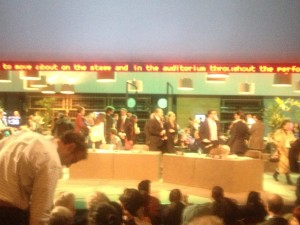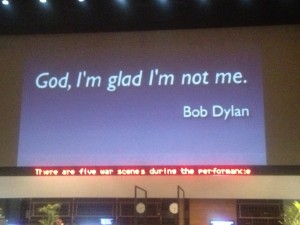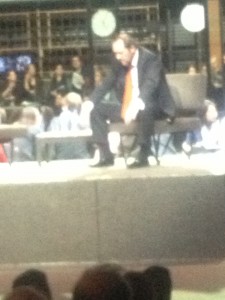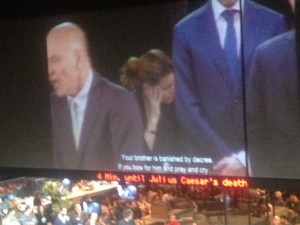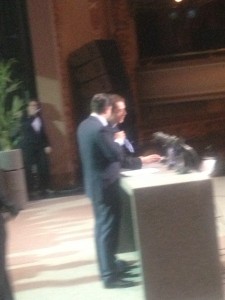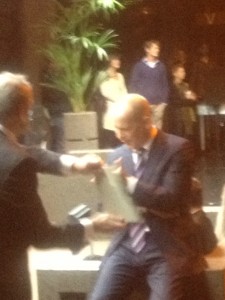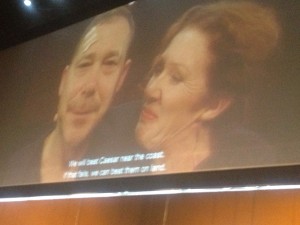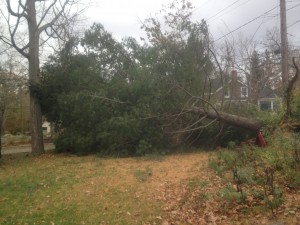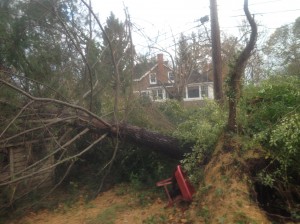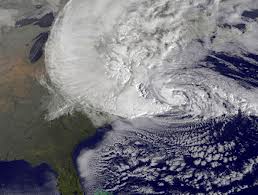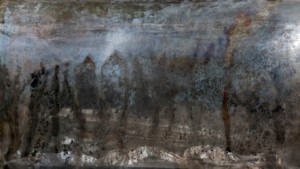Last weekend’s periodization discussion made a sharp turn when Stephen Greenblatt’s modernization parable, The Swerve, won the MLA’s first annual Lowell prize for fiction. Those who, despite the seasonal upwelling of darkness-into-light stories at this time of year, remain unconvinced by zombie myths of Dark Ages and sudden lurches into modernity, have been outraged. Much cleverness and knowledge on display in the aftermath, including some lively FB & blog threads and on twitter, where Bruce Holsinger (@burnablebooks) warmed up the wires with a brilliant series of self-immolating tweet-quotations exposing the sillier claims of the book: see #TheSwerve.
The heart of this swervin’ exchange lays bare the conflict between two things: an objectively false feel-good story of “how the world became modern,” and a better-informed sense of what went on before Poggio found that copy of De rerum natura. The first thing is narrative, or perhaps myth; the other draws on the historical record.
I wonder what happens if we disentangle these threads? What if we rethink “modernity” as something other than a historical phenomenon? What if it’s a story?
The modern might not be a thing that “begins,” but a narrative humans tell about the felt experience of change. Discontinuity challenges any kind of systemic thinking, and “modernity” as a story makes sense of discontinuous change through the metaphor of the Break, the once-and-for-all transformation of what was into was is, or at least what is-becoming. This story gets told in crude and less crude formulations — The Swerve deserves mockery b/c it’s careless in its characterizations — but the modern-story can, perhaps, be retold to accommodate better representations of what precedes a modern-moment. A richer modernity story should also embrace the post-break fluidity that we mostly call postmodern. As Jameson sagely observes, any conception of modernity that cannot also explain postmodernity is pretty useless.
The four maxims Jameson lays out in A Singular Modernity (2002) are all pretty thought-provoking, actually. A quick paraphrase: “We cannot not periodize” “modernity is a narrative category” “modernity is not about subjectivity” “we need a modernity that also understands the postmodern.”
History itself does not and need not follow this modern parable. Any narrative about historical change-and-continuity must, in order to be a narrative, do some violence to the plenitude of the historical record. Some narratives are better than others; some work and others do not. I always prefer the flexible and recursive to the abrupt and enlightening, but that may be as much a generic preference for complexity and connection as an affinity for “reality,” that elusive thing. History overfills all human narratives; that’s why in addition to “facts” we need poetry — and geometry, statistics, economics, plasma physics, interior design, geoclimatology, the Hubble Telescope… Objects and alliances of all sorts, human and not.
I’m deeply sympathetic to the many eloquent defenses of medieval plenitude and cultural brilliance — the latest ones I’ve read include Anne Harris’ letter to the New Yorker when the pre-Swerve exerpt appeared, and Kellie Robertson’s scholarly prebuttal of Greenblatt before the book reached print (Kellie Robertson)– but I retain interested in something like “modernity” (maybe we need a different word?) as a flexible narrative category that responds to cataclysmic change. The narrative of modernity, of course, needn’t be new in 1517 or any other special time; we can see its traces all over the literary-historical record, from Boccaccio to Chaucer, in Ovid, Lucian, and Achilles Tatius, and many others. I’m not an Anglo-Saxonist, but I read The Wanderer as a lament about the human pain that attends cultural change.
Whatever heroic story of “the modern” you want to tell — bold explorers, brilliant textual scholars, brave Lutherans, lethal viruses, high-caloric American food crops feeding China or Ireland — will exclude and misrepresent aspects of the historical record. That’s a reason to tell more complex and less triumphant stories.
My own favorite story about what it feels like to live inside modernity is shipwreck, which might be a Break but usually isn’t a triumph. Or at least it doesn’t feel like one at first.

